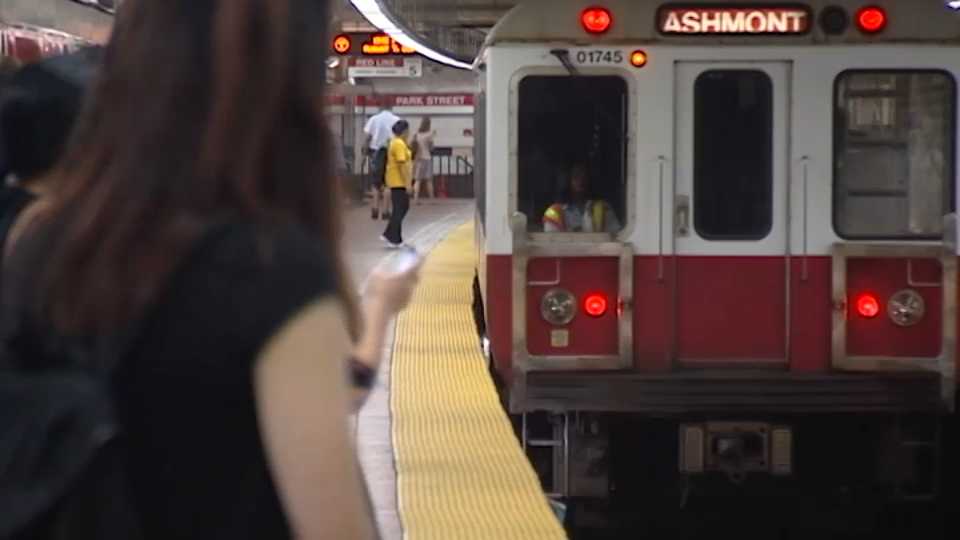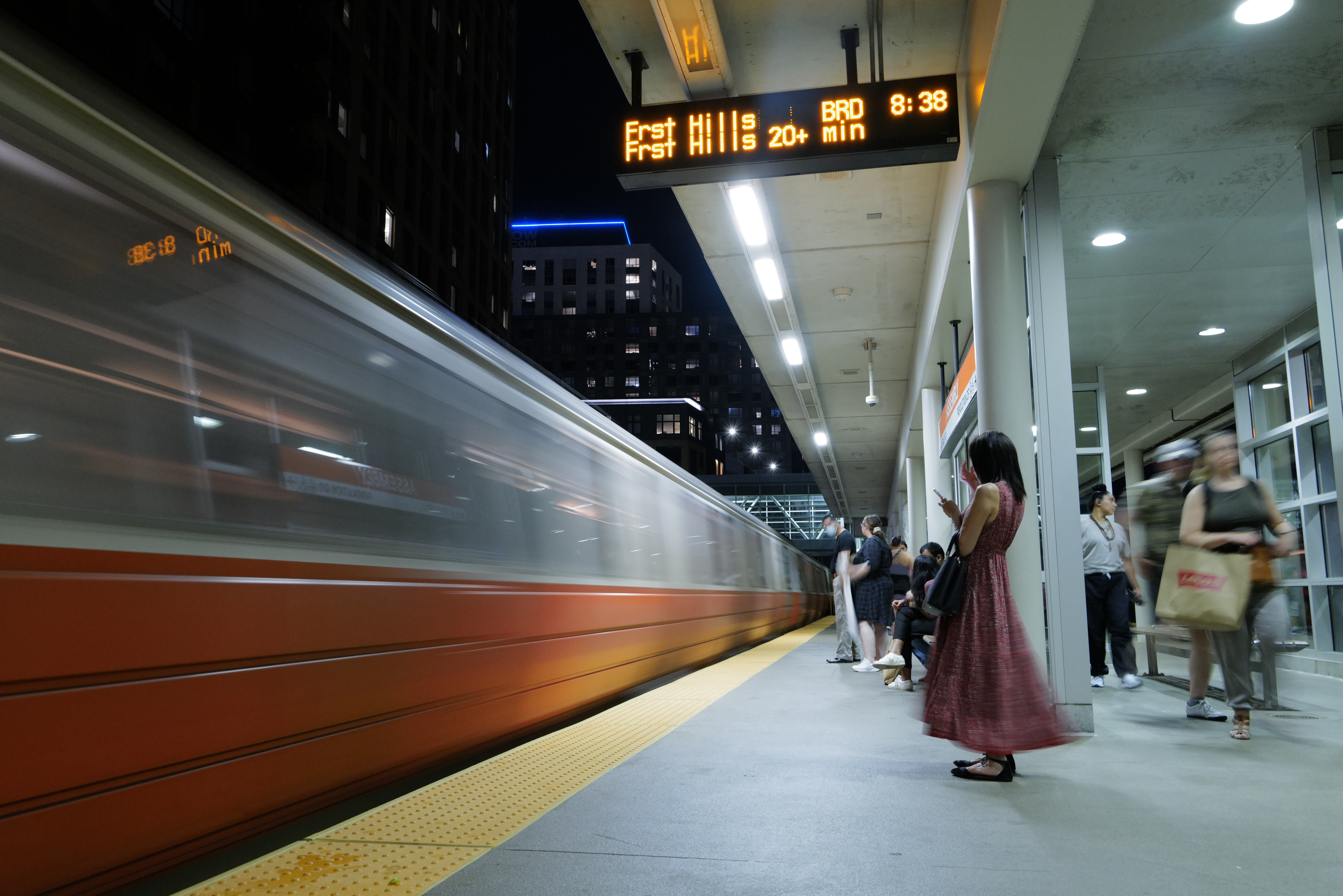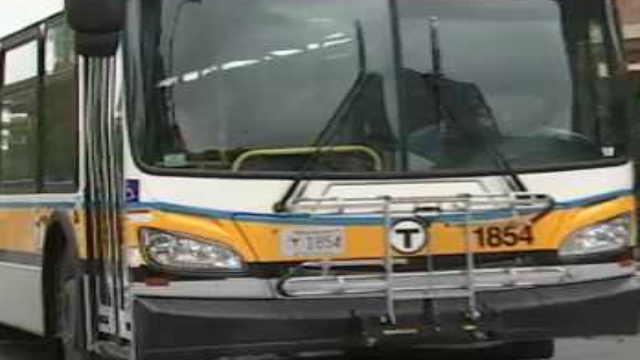A toxic combination of persistent staffing shortages, misaligned management priorities, and communication breakdowns up and down the chain of command created serious safety deficiencies at the MBTA, federal investigators concluded Wednesday.
Capping off a months-long investigation into high-profile safety failures at the T that in some cases have caused injuries or deaths, the Federal Transit Administration published an extensive, withering report ordering immediate fixes in the next six weeks at the MBTA and at the Department of Public Utilities, two agencies overseen by Gov. Charlie Baker's administration.
WATCH ANYTIME FOR FREE
Stream NBC10 Boston news for free, 24/7, wherever you are. |
The 90-page report paints a harrowing picture of a transit agency where critical departments are understaffed and overworked, senior leaders focus on the gleaming promise of capital projects at the expense of deteriorating infrastructure, and organizational blind spots leave higher-ups unaware of systemic problems. It also depicted a DPU that has been falling short of its statutory oversight role.
That potent combination of factors, some of which were flagged in an independent safety panel report published in December 2019, has spilled over into service, creating weeks of disruptions.
Get updates on what's happening in Boston to your inbox. Sign up for our News Headlines newsletter.
Between Jan. 1, 2020 and April 30, 2022, MBTA trains derailed and collided at rates "that far exceed industry average and the safety performance of MBTA's peer transit systems," the FTA wrote. On light rail, which includes the Green Line and the Mattapan trolley but not the other subway lines, the MBTA alone accounted for 38 percent of collisions and 94 percent of the associated injuries for "the entire U.S. light rail industry" between 2017 and 2021, according to the report.
"The combination of overworked staff and aging assets has resulted in the organization being overwhelmed, chronic fatigue for key positions in the agency, lack of resources for training and supervision, and leadership priorities that emphasize meeting capital project demands above passenger operations, preventive maintenance, and even safety," the FTA wrote.
Building on the interim orders the FTA issued in June before concluding its probe, federal overseers instructed the MBTA to make changes in four major areas: staffing, safety management, internal communications, and operating conditions and policies. The DPU also faces additional requirements to ramp up its oversight of the T.
Read the directives:
Each of the new special directives requires the MBTA or DPU to submit corrective action plans, with due dates ranging between Sept. 20 and Oct. 15.
MBTA General Manager Steve Poftak said Wednesday the T has started or is in the early stages of responding to 24 of the 53 total actions recommended by the MBTA. Three others are planned but have not yet begun, while 26 need to be planned, he said.
Poftak called it "a challenging day for us here at the MBTA but also a day, I believe, of opportunity for us to further refine and make our organization safer." Poftak and other MBTA officials paused their 10 a.m. board meeting to meet privately and review the federal agency's final conclusions.
While the FTA will remain involved in an oversight capacity to ensure changes are made, it has not opted to take over safety oversight at the T as it did, temporarily, with the Washington Metropolitan Area Transit Authority the only other time it conducted a similar safety management inspection.
Sign up for our Breaking newsletter to get the most urgent news stories in your inbox.
FTA Associate Administrator for Communications and Congressional Affairs Paul Kincaid said the federal agency made that intervention at the Washington, D.C.-area system in 2015 because the state safety oversight agency in place at the time "was not capable of providing adequate safety oversight due to its legal structure and lack of enforcement authority." That contrasts from the DPU, he said.
The FTA's report is packed with details that cast a harsh spotlight on problems at the T, but federal officials took a more diplomatic tone in their remarks Wednesday. Kincaid said both the MBTA and DPU made decisions "that the FTA does not consider in the interest of safety" but pitched the investigation's end as a "turning point."
"It is not a time for recriminations. It's a time to make the T better. It's a time to improve the safety culture at the T. It's a time to make the DPU aware of what it needs to do and make sure it's doing its job moving forward and to create a safer and more reliable T for all of Massachusetts," Kincaid said. "The T did not get here overnight, and it will not get back to a state of good repair overnight. There is going to have to be, unfortunately, patience on the part of the riders of the T."
Part of the Executive Office of Energy and Environmental Affairs, the DPU is overseen by a three-member commission: Chair Matthew Nelson and members Robert Hayden and Cecile Fraser.
A DPU spokesperson refused to make a commissioner or another official available for an interview on Wednesday.
Time to Staff Up
MBTA officials said Wednesday morning that they would stand up a new Quality, Compliance and Oversight Office to lead the response to the FTA's findings. That office, which will be helmed by MBTA Chief of Capital Delivery Katie Choe, will report directly to Poftak.
The Department of Transportation will also work with a consultant to explore splicing the MBTA's capital work out to a "multi-modal large construction unit apart from the MBTA," a T spokesperson said.
Nearly simultaneously with the report's release, Gov. Baker on Wednesday announced he was filing a supplemental budget bill that would make another $200 million available for the MBTA to use on safety fixes, in addition to $400 million in a new infrastructure law and $266 million in the fiscal year 2023 state budget.
"These funds go toward new recruitment efforts to attract and expand the transit industry workforce and to finance the new safety initiatives called for in the report. We look forward to working with labor, MBTA leaders, lawmakers and riders to deliver the MBTA riders deserve," Baker said in a statement, adding that the FTA report "will make the system safer and more reliable for riders and the T workforce."
A key factor in the MBTA's response will be an expanded workforce, ramping up pressure on T officials who are already struggling to hire in a tight labor market.
At its current staffing levels, the T does not have enough workers available to simultaneously run its desired level of subway service, keep the system properly maintained, and fulfill the goals outlined in its multi-year capital plan, the FTA said.
For the past half-decade, the MBTA's workforce has lagged the number of budgeted positions by 7 to 10 percent. Many workers are headed for the exits now, either to take new jobs or to retire, exacerbating the challenge.
Federal officials ordered the MBTA as part of its response to create a five-year workforce plan, a step Poftak said would take several months to complete.
Citing interviews with "a range of personnel," the FTA said in its report that the MBTA may be 1,500 to 2,000 positions short of managing its current level of activity, a gap representing more than a third of the T's roughly 5,800 active employees.
That kind of staff expansion would represent an enormous additional cost on the MBTA, which already expects to face an operating budget gap of hundreds of millions of dollars next year and in subsequent years.
Poftak said the five-year staffing plan will inform discussions about rethinking how the T is funded, but he punted on calling for reshaped state support until the "raw materials" become clearer.
"The workforce assessment is likely going to show us that we need additional staffing across the board. That does inform a discussion about funding down the road," he said. "We think we're in the fiscal position at least in the short and medium term to be able to address our needs. I think there is a longer-term conversation that pivots off that workforce discussion."
The new development comes nearly three years after Democrats in the Legislature launched and then aborted a push to raise taxes to boost public transportation investments, an effort that did not draw support from Baker, who had maintained there's adequate funding available.
In June, after federal investigators warned that overworking operations control center dispatchers posed safety risks, the T slashed service on the Red, Orange and Blue Lines. Those changes will remain in place for the fall, and bus frequency also dropped this week amid a shortage of drivers.
"Systemic Failures," Not "Freak Accidents"
The FTA launched a safety management inspection in April, pressed into action by a string of incidents on MBTA trains including the April death of a Red Line rider whose arm was caught in a closing door. The probe focused on the Red, Orange, Blue and Green Lines as well as the Mattapan trolley, but did not include the commuter rail system -- operated by Keolis -- or the bus network.
Investigators conducted more than 200 interviews, combed through more than 1,500 documents, performed dozens of field inspections, and visited the sites of both recent safety problems and major capital projects.
People interviewed along the way "articulated concerns about MBTA leadership's lack of urgency to address safety deficiencies in a timely manner," the FTA found.
Get updates on what's happening in Boston to your inbox. Sign up for our News Headlines newsletter.
"All levels of the organization, from leadership to frontline workers, expressed surprise and occasional alarm at the MBTA's declining safety performance but tended to view incidents as 'one of a kind' or 'freak accidents' rather than the result of systemic failures in operating procedures, training, staffing, and supervision," investigators wrote. "Pressure points identified in interviews and on-site inspections, such as lack of staffing and supervision, lack of enforcement of safety rules, lack of track access for critical repairs, and excessive overtime, were generally dismissed as inevitable and normal work conditions. There was little awareness that key mitigations previously put in place to reduce safety risk, including safety procedures, staffing resources, and supervision, may no longer be as effective as they once were because resources have been strained so significantly over the last few years."
One recurring theme the FTA flagged is an overemphasis by MBTA leadership and the Baker administration on the capital budget, which covers major expansion, modernization and large-scale maintenance projects, at the expense of day-to-day service and maintenance on the operations side.
Baker has long touted an increase in the capital budget during his administration as a success, often pointing to the ramped-up spending on those projects when responding to criticism about his management of the T.
But federal investigators said the MBTA is failing to balance its focus on the operating and capital sides, a problem "at the center of many of MBTA's safety challenges."
"Over the last four years, the MBTA's capital budget has grown four-fold, yet MBTA is still recovering from the impact of funding cuts from 2015 to 2019 to the MBTA's operations and maintenance budget which resulted in a reduction in hundreds of millions of dollars and hundreds of positions," the FTA said.
In January, Poftak outlined a plan to redirect $500 million from traditional operating revenue streams like fares and advertising toward capital needs. He argued at the time that one-time federal dollars gave the agency flexibility to get more work done now.
The FTA viewed that move as "not advisable," Kincaid said Wednesday.
Federal investigators in their report contrasted the funding transfer with the July 21 Orange Line fire, warning that MBTA assets and infrastructure "continue to deteriorate and fail" while its higher-ups focus on capital projects.
"In this environment, emphasizing capital project demands above passenger operations and preventive maintenance can negatively impact the safety culture of the agency," the FTA wrote. "FTA found that unwritten norms have emerged that emphasize a 'get it done and go' mentality over following safety rules or ensuring compliance with minimum safety standards, particularly when staff are working 12 to 16-hour days, six days a week."
Another area that drew repeated attention in the federal probe is a lack of attention to key details of safety management.
The FTA found that MBTA leadership "demonstrated a lack of familiarity with safety risk management principles," often delivering answers that were "general and lacking in detail and examples."
Neither MBTA workers nor third-party contractors were able to readily communicate how the T's safety requirements related to the programs they worked on, investigators found. Employees made "frequent use of unvetted and ad hoc shortcuts in work practices," sometimes violating safety rules to meet deadlines, according to the report.
Investigators said MBTA leaders often rely on "raw data" or "lagging indicators" to guide their responses to safety issues, rather than analyzed reports with clearly identified trends and recommendations for action.
"Under this framework everything becomes a safety priority, overwhelming supervisors, managers, senior managers, and executive management, and resources are allocated to address symptoms rather than causes of safety concerns," the FTA wrote.
The Need for State-Level Oversight
The FTA's investigation did not focus only on the MBTA. It also examined the DPU, an agency that has rarely made its involvement with the T publicly known but serves as the designated state safety oversight agency responsible for keeping an eye on the transit agency.
FTA officials wrote that although DPU has bulked up its staff in the three years since a prior federal report, many workers are "relatively new and still learning (state safety oversight) requirements and activities."
"What our report indicates is that they haven't been doing it adequately," Kincaid said of the DPU's oversight.
The DPU-specific directive from federal officials calls on the department to deploy its enforcement authority to review the MBTA's corrective actions and ensure they are completed in a timely manner. The FTA also told the DPU to take a closer look at the MBTA's fatigue management, observing that some MBTA officials such as instructors, yardmasters, chief inspectors and inspectors are still working up to 20 hours per day with only four hours off between shifts -- a schedule that federal regulators already said posed a safety risk among dispatchers.
A Baker administration spokesperson said the DPU is conducting weekly visits at the MBTA Operations Control Center to ensure employees are not working excessive hours and is making weekly visits to rail yards and car houses. Existing oversight work at the DPU includes site visits of accident scenes, unannounced field observations, and monitoring safety certification of large projects such as the Green Line Extension.
Nine full-time equivalent employees work on the DPU's transportation safety staff, and the department is working to hire five more transportation safety experts as well as compliance officers, public utilities engineers, and auditors, the administration said.
The DPU, through a spokesman, issued a statement in response to the federal report.
"The Department of Public Utilities takes seriously its responsibility to ensure the safety of riders of the Massachusetts Bay Transportation Authority's transit system, and the agency welcomes the thorough review conducted by the Federal Transportation Authority," DPU spokesperson Troy Wall said. "The recommendations support the Department's Rail Safety Division's ongoing efforts to promote the safe operation of the MBTA and build upon safety and oversight initiatives already underway including increased safety staffing, the creation of a new Director of Rail Transit Safety position, field work and audits of the MBTA to provide further oversight and collaboration with the FTA to ensure the MBTA's corrective action plans are both sufficient and properly executed."
"The Department of Public Utilities will continue its aggressive efforts to hire safety experts, implement proactive safety management systems, and further increase safety audits, and the Department looks forward to ongoing collaboration with state and federal transportation officials to ensure riders receive a safe and reliable transportation system," Wall added.




